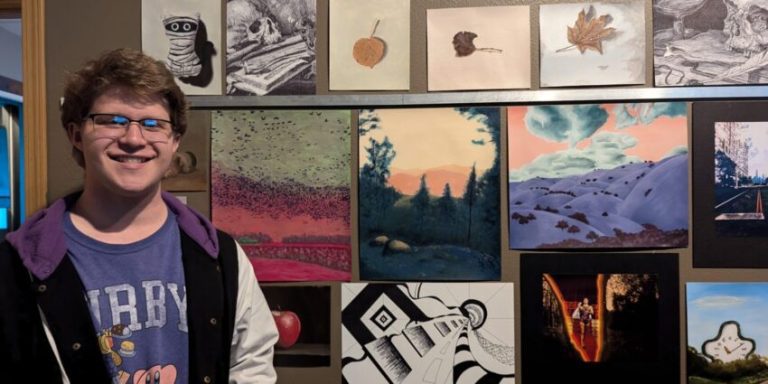December 5, 2024
This paid article is sponsored by Dakota State University.
Adaptable.
That’s the perfect word to describe the College of Arts and Sciences at Dakota State University.
“We used to say that a degree in arts and sciences opened doors in any career field,” said Dr. Stacey Berry, dean of the college. “Even with the rise of emerging technologies, this remains true as the arts and sciences play a key role in supporting the human-machine collaboration that defines today’s AI-driven workplace.”
“Today’s technology-enriched work environment requires a strong human element,” Berry added.
“Employers are looking for professionals who excel in critical thinking, communication and creativity. It is these skills that make our graduates adaptable and indispensable in the workplace.
This adaptability is a hallmark of DSU’s College of Arts and Sciences, which combines interdisciplinary learning, creativity and cutting-edge technology to prepare students for the dynamic job market.
“Our programs encourage leaders and decision-makers who thrive in collaborative environments,” Berry said.
She assumed the role of dean this fall, after 14 years of teaching in the English program. Attracted to DSU because of its student-centered vision and forward-thinking integration of technology, she transitioned into administration to amplify student and faculty successes. “Standing up for others showed me how rewarding leadership can be,” she said.
Looking to the future, Berry is passionate about innovation in curriculum and research.
“What motivates me is finding ways that technology and collaboration can inform programs and position our graduates on a path to success.” »
Ethan Sip is one of the DSU students whose work was featured in a recent student exhibition at the Madison Area Arts Council.
Each major in the College of Arts and Sciences integrates technology as an essential element of applied learning. For example, students studying animation and graphic design start with hand-drawn and hand-painted projects before leveraging technology to explore other possible outcomes. This combination of human-centered and technical skills makes them uniquely prepared for the demands of the industry.
The math, science and English programs also align with the university’s cybersecurity and computing initiatives, including artificial intelligence and quantum computing. Faculty in these fields are heavily involved in teaching and research on emerging technologies, often engaging undergraduate students in innovative projects. These efforts highlight the college’s commitment to innovation across all disciplines.
Dr. Bill Bendix teaches in the Cyber Leadership & Intelligence program in DSU’s College of Arts & Sciences. This major integrates the study of technology with world cultures, international politics, and leadership.
Berry emphasizes that adaptability doesn’t just come from curriculum innovation: it’s also about staying connected to the job market. The college offers degrees in emerging fields such as computer game design, cyber leadership and intelligence, and digital content creation. Programs like these reflect the college’s focus on employer needs and in-demand skills.
“We look forward to collaborating with companies, organizations and professionals who can serve on our advisory boards or guide us in developing certificates or courses tailored to workforce needs,” Berry said.
“Our graduates are not only prepared for their first job, but are also able to lead and adapt as industries evolve,” demonstrating that the College of Arts and Sciences is committed to building connections for a long-term success.
Many of DSU’s science majors are involved in hands-on research projects, a unique opportunity for undergraduates.
By remaining adaptable, innovative and connected, the college sets the standard for a new era of interdisciplinary education.





